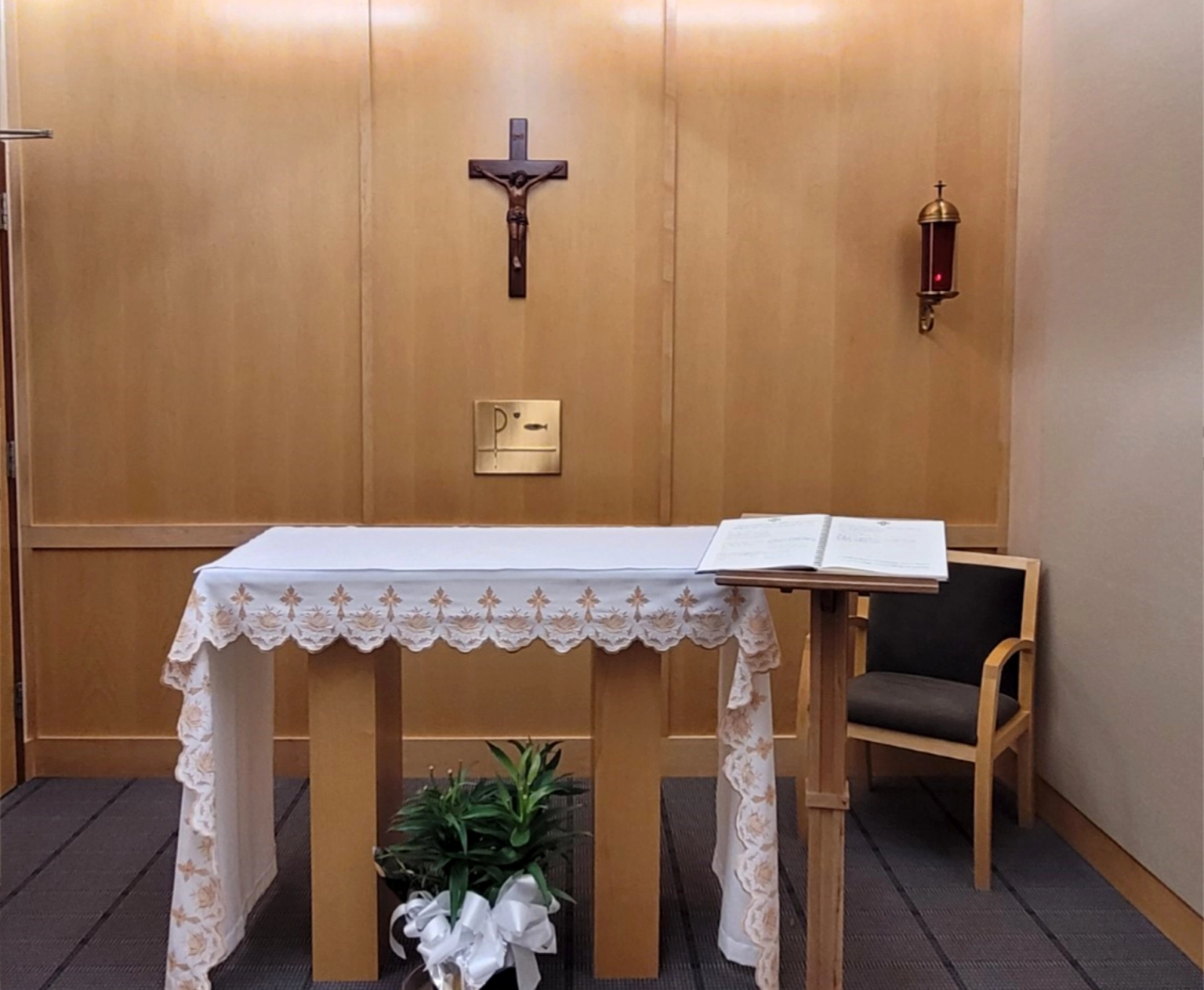
PROSPECT HEIGHTS — With a potential lawsuit looming, the federal government has issued a waiver to allow a Catholic hospital in Oklahoma to keep the flame of its long-lit sanctuary candle burning, which, in the Catholic tradition, symbolizes the presence of Christ.
The Department of Health and Human Services “realized it would be playing with fire in court if it stood by its absurd demand, so it chose wisely,” Lori Windham, vice president and senior counsel at the Becket Fund for Religious Liberty, said in a statement.
“We are glad Saint Francis can continue to serve those most in need while keeping the faith,” she said.
Following a hospital inspection in February, a surveyor commissioned by the federal government deemed that a living flame in the Saint Francis Hospital South chapel — part of the Saint Francis Health System — violated code, as it is “an open flame burning unattended 24/7.”
The surveyor issued a citation demanding the candle be extinguished. The federal government then doubled down on the decision in an April 20 letter responding to the hospital’s appeal and request for reconsideration, noting that the hospital would lose its accreditation if it didn’t follow the order.
Saint Francis Health Systems and Becket, meanwhile, argued that Saint Francis cannot extinguish the flame as a matter of faith since the living flame in the chapel is “a sign of the living presence of Jesus.” As such, they claim the order is a violation of the First Amendment, and in an April 28 letter responding to the federal government, threatened legal action if the order wasn’t rescinded.
A spokesperson for the Centers for Medicare and Medicaid, the federal agency under the Department of Health and Human Services that commissioned the surveyor, told The Tablet in a statement that the two sides met, and the hospital will now work with the accrediting organization on next steps to ensure safety.
“[Centers for Medicare and Medicaid] met with the hospital and accrediting organization and issued a waiver to allow the hospital to mitigate the potential fire risk and correct the safety finding,” the spokesperson said. “The hospital will work with the accrediting organization on next steps.”
Founded in 1960, Saint Francis Health Systems operates five hospitals in eastern Oklahoma, serving more than 400,000 patients each year. Saint Francis Hospital South, in particular, is the largest hospital in the state of Oklahoma and the 12th largest hospital in the nation.
According to Windham’s April 28 letter, since the hospital opened, it has traditionally had a sanctuary candle with a living flame as an act of worship. Pictures of the candle in question show a single encased candle mounted on the wall of the Saint Francis Hospital South chapel. The encased candle rests in a bronze holder, which is affixed to the wall of the chapel and covered by a bronze top.
A sprinkler system is visible on the ceiling above the candle. Windham also noted that the flame is far removed from medical equipment and patients and that the government and local fire marshal have repeatedly approved the candle through the years.
If an agreement wasn’t reached and Saint Francis Hospital South lost its accreditation, Windham said it would have resulted in “such unreasonable financial losses to the Saint Francis Health System that it would abruptly and immediately jeopardize its services to the elderly, disabled, and low-income patients who rely on Medicare, Medicaid, and the Children’s Health Insurance Program (CHIP).”
Dr. Cliff Robertson, CEO of Saint Francis, said he’s grateful that didn’t happen.
“At the heart of Saint Francis’ mission is love for God and man. The living flame of our chapel candle indicates to all who enter our hospitals that we will serve them with religious devotion as Christ commands us,” Robertson said in a statement.
“We are grateful for the support of Becket and Yetter Coleman, of the Oklahoma Delegation, and of countless persons all throughout the nation, and we are grateful for The Joint Commission and HHS’s recognition of our Religious Liberties,” he said.
